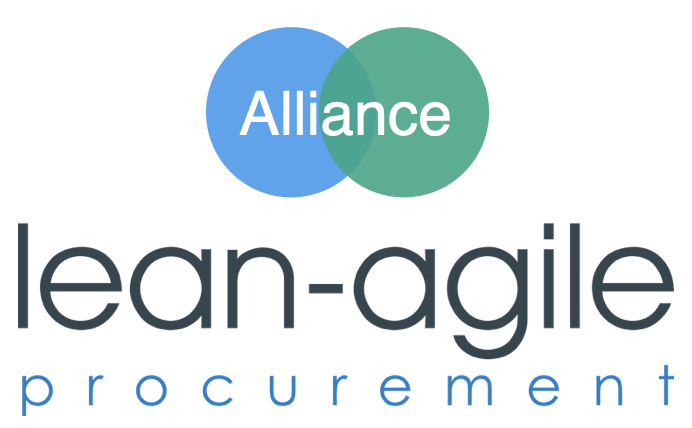
Contract Types
Outcome-based
Outcome-based
Contract
Characteristics
Category
Iron Triangle
In an Outcome-based contract, the scope is defined at a high level by outlining business objectives or outcomes, allowing flexibility in how these are accomplished. While the time and quality standards are predefined, the cost ceiling is variable and does not necessarily have to be fully utilized, providing an opportunity for cost savings if the targets are met efficiently.
Agile Contract?
Yes, an Outcome-based Contract can be considered an Agile contract because it offers flexibility in achieving the desired outcomes and current costs. New ideas from either party can be integrated during the delivery process without the need for formal change requests.
An Outcome-based Contract is similar to a Target Price Contract, but instead of defining the scope output-based, it defines specific outcomes or impacts. This contract type is suited for relational relationships and focuses on achieving set outcomes without specifying the exact methods, solutions, services, or products to be used. It allows flexibility in how the outcomes are met, encouraging innovation and adaptability.
Buyers Perspective
Example
An example of an Outcome-based Contract might involve a renewable energy company committing to reduce a client's energy consumption by 20% over two years. The contract specifies the outcome but allows flexibility in how it is achieved, enabling the company to choose the most effective solutions within set time, cost, and quality constraints.
Also known as
Results-oriented Contracts, Value-based Contracts, Results-driven Contracts, Goal-oriented Contracts, Objective-based Contracts
Vendors Perspective
From the vendor's perspective, Outcome-based Contracts offer the opportunity to showcase expertise and efficiency by focusing on delivering specific results. This contract type provides potential to showcase the full capability of the vendor. However, it also carries the risk of not being compensated if the agreed-upon outcomes are not met, requiring careful planning and management to ensure successful delivery. The vendor has the flexibility to determine the best methods and resources to achieve the desired results, allowing for innovation and optimization in the delivery process.
From the buyer's perspective, Outcome-based Contracts provide clarity and focus on achieving specific results, outcomes or impacts, ensuring that payment is closely tied to the success of the project. This type of contract minimizes risk for the buyer by shifting performance accountability to the vendor, encouraging them to meet defined objectives efficiently and effectively. The buyer benefits from a clear alignment of interests with the vendor, as compensation is contingent on the delivery of desired outcomes, which promotes cost-effectiveness and quality assurance.
Optimal if
Outcome-based Contracts are optimal when specific, measurable goals can be clearly defined, and the buyer seeks to align the vendor's incentives with these objectives. They are ideal for projects where the focus is on delivering results rather than prescribing methods, allowing for flexibility and innovation in achieving the desired outcomes.
Challenges
Defining Clear Outcomes: Accurately specifying measurable and achievable outcomes can be difficult, leading to potential ambiguities and disagreements.
Risk Transfer to Vendor: The vendor bears significant risk, as payment is contingent on meeting specified outcomes, which can be influenced by factors beyond their control.
Complex Performance Measurement: Establishing reliable metrics and monitoring systems to assess the achievement of outcomes can be challenging and resource-intensive.
Scope Creep: Without detailed specifications, there's a risk of scope creep, where the client may expect additional work without adjusting the contract terms.
Quality vs. Cost: The focus on specific outcomes may lead vendors to prioritize meeting targets over maintaining quality, potentially compromising the overall value of the deliverables.
Unpredictable Costs: For vendors, the cost of achieving the outcomes may be unpredictable, making it challenging to budget and manage resources effectively.
Dispute Resolution: Disagreements over whether the outcomes have been achieved, or the quality of the results, can lead to complex and protracted disputes.
Advantages
Shared purpose: Both parties are focused on achieving specific outcomes, ensuring that the vendor's efforts are closely aligned with the buyer's objectives.
Cost Control: Buyers have greater financial predictability, as payments are contingent on the successful delivery of outcomes, reducing the risk of paying for subpar work.
Flexibility in Execution: Vendors have the freedom to choose the best methods and resources to achieve the desired results, promoting innovation and adaptability.
Risk Management: The buyer's risk is minimized, as the vendor takes on the responsibility for delivering the agreed-upon outcomes.
Focus on Value: Emphasis is placed on the end results and overall value delivered, rather than the process or specific activities, leading to a more results-oriented approach.
Accountability: Clear, measurable outcomes establish accountability, making it easier to assess the vendor's performance and the project's success.
Efficiency and Optimization: Vendors are encouraged to optimize processes and resources to meet the outcomes cost-effectively, potentially leading to greater efficiency and innovation.


